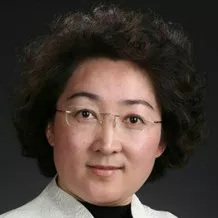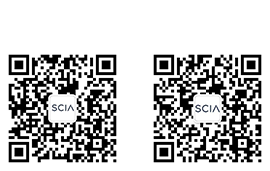
案例&研究
News
- 案例选编 中国国际仲裁研究院
- 中国国际仲裁评论 SCIA研讨会 跨国投资与法律培训中心
- 法律法规
处在十字路口的国际法——国际法治的理想与现实(中英文版)

International Law at a Crossroad:
The International Rule of Law: An Ideal and the Reality
处在十字路口的国际法:国际法治的理想与现实
Prof. Dr. Hong ZHAO
Member, Chair, Appellate Body of the WTO
The International Law Forum
Munich Security Conference
Literaturhaus in Munich (Salvatorplatz 1, 80333 Munich)
February 13, 2020
Munich, Germany
赵宏教授
世界贸易组织上诉机构成员、主席
慕尼黑安全会议,国际法论坛
2020年2月13日
德国慕尼黑
Winston Churchill — 'The farther back you can look, the farther forward you are likely to see.'
The history of human beings was perhaps of more than 2 million years on the 4 to 5 billion years planet Earth. The written record of Human civilization was probably of only a few thousand years. From living in a cave to a world of computers and mobile phones, the achievements of human civilization could not be regarded as less splendid or glorious during this rather short period of time in the long river of human history. For some, the skyscrapers that change the landscape and skylines of metropolitan cities, the manned space station, the artificial intelligence and the cloud computing are probably more prominent among these achievements; for others, the invisible social structures and institutional frameworks that underpin the human activities leading to these material achievements are even more fundamental to human beings. Nobody can deny that human beings, after all, are social animals. Obviously, all the current civilizations have been achieved through social, organizational co-ordinations and collaborations.
Therefore, the rules reflecting common values and beliefs of human beings that underpin these institutional frameworks and social structures facilitating the co-ordinations and collaborations are highly important and treasurable for all of us. These rules are known as domestic law at national level and international law in the international regime. In a nutshell, the "rule of law" is the concept lying behind all these rules and practices in both national and international domains. It has become an ideal as well as a key common value underpin the operation of modern society of mankind.
However, after a remarkable implementation and practice in many fields of the international affairs, international law seems to have come to a critical juncture. Whither the next step? Are we moving towards a jungle world or continue our effort to go along with a world of rule of law? Will the multilateral framework and rules stick to or be sidelined by the rising unilateral actions in international trade and investment? Shall the world continue to be open to, and interactive with, each other through further collaboration, or are we turning to an era of deglobalization? All these are questions, ringing not only in people's minds but also on top of the headlines of daily newspapers.
Perhaps this is the very reason that for the first time in all the summits of Munich Security Conferences for more than half a century, that organizers sponsor this International Law Forum. It is a great honor for me to be invited and present at this Forum. It would also be my pleasure if I could be of some help alleviating the doubts and rebuilding the confidences among the audiences on the rule of law in the international affairs. That is the reason I fly from Geneva to Munich. By the way, Munich is the city impressed me deeply for its beauty and serenity. I had visited it several times while I worked with the Joint Sino-German Legal program sponsored by GTZ (Die Deutsche Gesellschaft für Technische Zusammenarbeit) and MOFCOM as the coordinator and co-trainer from the Chinese side. The Chinese legal society appreciated that program very much, they are deeply grateful for the help and assistance provided by GTZ on behalf of Germany. Let me take this opportunity to thank the organizer for inviting me and for all their efforts to make this Forum possible today. I wish it a great success.
The topic of my lecture is "International law at a crossroad", subtitled as "International rule of law: an ideal and the reality"
I intend to address three issues. First, the origin and evolution of the rule of law; Second, does international rule of law exist? Third, why should we uphold international rule of law? Lastly, if time permits, as the only remaining Member as well as the Chairperson of the Appellate Body of the World Trade Organization, I will say a few words on the dispute settlement mechanism of the WTO.
Biography
Prof.Hong ZHAO is currently the Member and Chairperson of the Appellate Body of the World Trade Organization. Professor Hong ZHAO is a guest professor at several universities including the University of Peking, Fudan University and the University of International Business and Economics.
Previously she served as Vice President of the Chinese Academy of International Trade and Economic Cooperation, Deputy Director General of the Anti-Monopoly Bureau in the Chinese Ministry of Commerce and as Assistant Trade Representative at the Office of International Trade Negotiations in the Chinese Ministry of Commerce. She also served as Minister Counsellor in charge of legal affairs at China’s mission to the WTO, during which she served as Chair of the WTO’s Committee on Trade-Related Investment Measures (TRIMs). Prof. Hong ZHAO then served as Commissioner for Trade Negotiations at the Chinese Ministry of Commerce’s Department for WTO Affairs. Prof. Hong ZHAO helped formulate many important Chinese legislative acts on economic and trade issues adopted since the 1990s and has experience in China’s judiciary system, serving as Juror at the Economic Tribunal of the Second Intermediate Court of Beijing between 1999 and 2004. She is also a Council Member of Shenzhen Court of International Arbitration (SCIA) and serves as arbitrator at the China International Economic and Trade Arbitration Commission (CIETAC). She has taught and supervised law students on international economic law, WTO law and intellectual property rights (IPR), at Universities in China and has been invited to give lectures at the University of London, the University of Barcelona, the University of Bern (WTI) and the Graduate Institute of International and Development Studies in Geneva.




